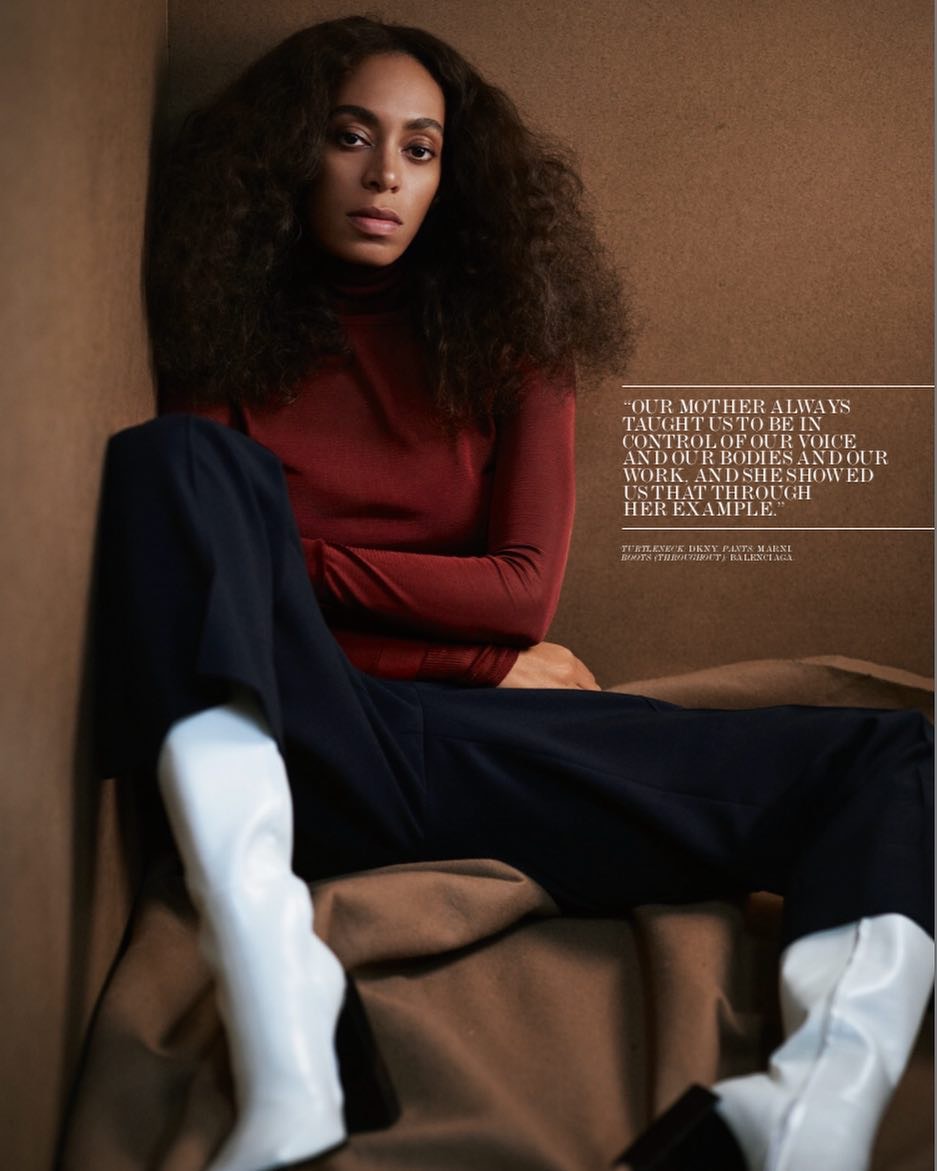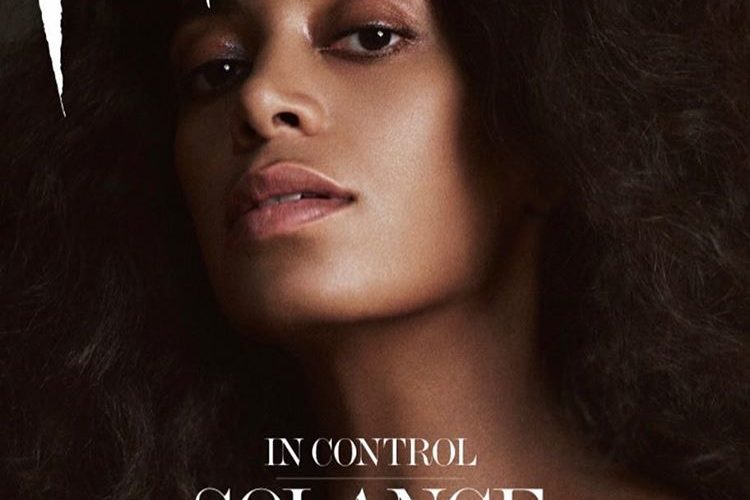Interview Magazine just did something to powerful and so important, they had one of the best entertainers, who is black, interview an astounding young performer that speaks on black issues and makes music for the culture; of course, the fact they’re sisters helps too.

Solange has made her own way into the industry, someone who was first known as Beyoncé’s younger sister, has know grown into herself, as an artist, mother, activist and friend.
“BEYONCÉ: You write your own lyrics, you co-produce your own tracks, you write your own treatments for your videos, you stage all of your performances, all of the choreography … Where does the inspiration come from?
SOLANGE: It varies. For one, I got to have a lot of practice. Growing up in a household with a master class such as yourself definitely didn’t hurt. And, as far back as I can remember, our mother always taught us to be in control of our voice and our bodies and our work, and she showed us that through her example…”
Solange delivered on this album, and she is finally getting the recognition she deserves. “A Seat At The Table” is such a powerful album for many reasons, ranging from its pro-black message, to it’s beautiful imagery; she’s taking the listener on a journey. Making people realize they don’t have to be victims, that we are strong. This album can pretty much be summed up through her own lyrics, Fubu style. “For us, this shit is for us!”

“BEYONCÉ: What does the song title “Cranes in the Sky” mean?
SOLANGE: “Cranes in the Sky” is actually a song that I wrote eight years ago. It’s the only song on the album that I wrote independently of the record, and it was a really rough time. I know you remember that time. I was just coming out of my relationship with Julez’s father. We were junior high school sweethearts, and so much of your identity in junior high is built on who you’re with. You see the world through the lens of how you identify and have been identified at that time. So I really had to take a look at myself, outside of being a mother and a wife, and internalize all of these emotions that I had been feeling through that transition. I was working through a lot of challenges at every angle of my life, and a lot of self-doubt, a lot of pity-partying. And I think every woman in her twenties has been there—where it feels like no matter what you are doing to fight through the thing that is holding you back, nothing can fill that void.”
That line alone is beautiful, real, and powerful at the same time. Some things are just ours, like how certain things are just for Hispanic people and their culture, how some things are just for the Asian culture, and so on and such forth. Growing up, we are taught American history, which is really white history. We are taught Christopher Columbus discovered America, that he and the Native Americans had Thanksgiving dinners together to celebrate one another. We are taught that slavery was such a long time ago, and that racism doesn’t exist. We’re rarely taught black history, and no, black history month doesn’t count. You can’t pack centuries of cultural advancements of African-Americans in one month.
“BEYONCÉ: It was a three-year process to create A Seat at the Table. You took your time, and it’s still so fascinating to me the amount of production you did for this album, the live instrumentation, with you physically, on the keyboards, on the drums, producing not only the vocals but also co-producing the tracks. It’s something to be celebrated, for a young woman to be such a strong producer as well as a singer-songwriter and artist.
SOLANGE: Thank you! One of my biggest inspirations in terms of female producers is Missy. I remember seeing her when you guys worked together and being enamored with the idea that I could use myself as more than a voice and the words. On my previous records, I contributed to production here and there, but I was always really afraid to really get in there and … I guess I wasn’t really afraid, I …”

Solange made an album celebrating her blackness, our blackness, our culture, the struggle, the strength, the beauty, the knowledge, the pain. Just everything. Not just music either, but stories as well. Stories from Master P, her mom Tina, and dad, Matthew, where they share their own experiences and trials with simply being black, discussing issues/stories of black pride, racism, overcoming the struggle, being successful, and more.
Click Here To Read The Full Interview/Article: Solange #InControl

I’ve been browsing online more than 2 hours today, yet I never found any interesting article like yours.
It’s pretty worth enough for me. In my opinion, if all webmasters and bloggers made good content
as you did, the net will be much more useful than ever before.